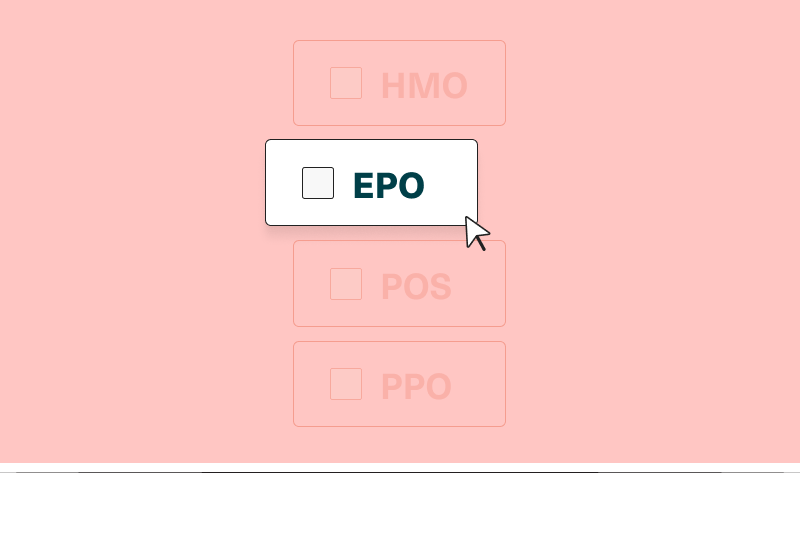Health insurance 101: What is a TPA?

Last updated on July 24, 2023
If you’ve ever shopped for self-funded health insurance plans for your small business, you might have come across the term “third-party administrator” (TPA), which may have left you wondering: What exactly is a TPA, and how do I know if my business needs one?
In this article, we’ll cover what TPAs do, along with their advantages and disadvantages, so that you can decide if a TPA is right for your business.
What is a TPA?
A third-party administrator is a consultant or company that provides full-service health benefits management for insurance companies or businesses with self-funded health plans. TPAs use industry expertise to help employers customize their plans and handle routine administrative tasks such as claims management and new member enrollment. They also verify the compliance of these plans with regulations like the Affordable Care Act, helping businesses avoid any penalties.
TPAs are especially useful for businesses that do not have in-house insurance experts and are looking to save time and resources.
Types of services provided by a TPA
TPA servicesMost TPAs offer a broad range of services that can be customized to fit your needs. Six common services include:
Plan design
Designing a self-funded healthcare plan can be daunting and requires time and thorough knowledge of insurance practices. A dedicated TPA has both and is equipped with the tools to help you select the best options for you and your employees. They’ll evaluate your employee demographics, gather information about their health needs, and calculate your expected claims. With this data, they’ll help you design custom plans and member incentives that fit your budget.
TPAs can also assist with specialized insurance options like disability, life, dental, or vision insurance. On top of that, they may provide stop-loss insurance, which provides coverage if your employees unexpectedly rack up high medical costs that exceed your budget.
Further, many TPAs offer brokerage services, so they can negotiate rates with these specialized vendors on your behalf.
Enrollment and eligibility management
Once you’ve created your self-funded healthcare plan, you’ll want to make sure that your employees are enrolled and have easy access to all eligible benefits. A TPA can handle the entire enrollment process, from paperwork and mailing ID cards to providing resources and consultations for employees, to ensure they get the best coverage for themselves and their families.
Once a system is set up, the TPA will offer ongoing enrollment support as employees join and leave your business, reducing your administrative burden.
Customer and member support
TPAs know the ins and outs of the health insurance industry, so they’re the best resource for members needing support. They can easily answer questions such as:
- Which plan can save my family the most money?
- Who is the closest in-network dermatologist?
- What’s my copay for an MRI?
- Why was the claim for my blood pressure medication denied, and how can I appeal?
- How do I get vision insurance?
- Do I need to get international travel coverage for my vacation to Switzerland?
Small businesses can simply refer their employees to their TPA for quick and accurate answers instead of trying to track down information on their own.
Claim processing and management
Handling claims is one of the most complicated parts of self-funded medical insurance. You’ll need to accept claims from healthcare providers, determine if the claims fall under your plan’s eligible services, negotiate fair rates, make payments, and manage appeals. TPAs can take care of all of these complex tasks, saving you time while ensuring accuracy and efficiency.
Cost containment
TPAs serve your business and employees by evaluating treatment options on a case-by-case basis and coordinating access to necessary medical services. They typically have case management specialists who work closely with members to make sure they get quality healthcare at the best price.
Reporting and data analysis
Self-funded health plans can collect and generate vast amounts of data, such as costs of services and medical records. A TPA will offer analytics and reporting services to help you understand your plan’s performance and make informed adjustments.
For example, the TPA’s analyses may reveal that only 5% of your employees enroll in your business’s vision insurance plan. You could switch to a new vision plan that is more appealing.
TPA vs ASO
Some people use the terms third-party administrator and administrative services only (ASO) interchangeably. However, there are a few crucial differences between these benefits management agencies.
What is an ASO?
The term ASO typically refers to health management contractors owned and directly operated by big-name insurance companies. By contrast, TPAs tend to be associated with independent companies, though they may also be part of a self-funded insurance company.
Insurers coined the term “ASO” in the 1980s in an effort to distinguish their services from TPAs and capitalize on the growth of self-funded insurance plans. Legally, though, an ASO and TPA are considered the same.
Generally, it’s best for small businesses to partner with a TPA over an ASO. However, before making a decision, research each company’s experience and services carefully. This can help you identify differences between specific vendors and choose wisely.
The merits of using a TPA
TPA benefitsA TPA offers many advantages for small businesses with self-funded medical plans, including:
- Affordability: A TPA can save your business money by helping you find economical insurance plans and negotiating fair rates for healthcare services.
- Industry knowledge: TPAs thoroughly understand the latest insurance practices and regulations, so they provide accurate and up-to-date guidance.
- Personalized advice: You will receive custom insurance recommendations tailored to your business’s and employees’ needs from a TPA.
- Record-keeping: TPAs gather and organize all data related to your plan, so you can quickly generate reports for audits.
- Stress reduction: You will be able to enjoy all the cost savings of a self-funded plan without any of the stress by handing off your management tasks to a TPA.
Is Sana a TPA?
Yes, Sana is a TPA for Sana plans.
We provide comprehensive TPA services for employers who prefer the flexibility and savings of self-funded health plans. TPA services provided by Sana include:
- Claims processing for medical services, pharmacy prescription drugs, and reinsurance.
- Brokerage services to connect clients with dental, vision, and stop-loss insurance vendors.
- Customer support for covered members.
- Guidance in selecting the right self-funded medical plan.
- New member and dependent enrollment.
- Member eligibility verification.
- Ensuring compliance with federal and state regulations.
- Claims pricing using a fair-value reimbursement model.
- Determining member responsibility for claims according to their plan.
- Issuance reimbursements to members.
- Assisting members in finding local in-network healthcare providers with the Find Care tool.
- Free access to HR advisors and resources through the Mineral software application.
If you want to learn more about how Sana can help you take full advantage of your self-funded insurance plan, get in touch today for a free quote!
TPA & health insurance FAQs
FAQsTPA licensing requirements vary by state. As of 2023, most states require TPAs to be licensed or registered. The current exceptions include Alabama, Colorado, the District of Columbia, and New York.
Unlike carriers, TPAs don’t offer insurance or assume financial risk for members’ healthcare expenses. Instead, TPAs offer administrative support for businesses with self-funded health plans. They serve as mediators between employers, members, carriers, and providers.
A TPA charges an employer a PEPM or PMPM administrative fee to issue and manage employee and dependent health plans. PEPM stands for “per employee per month,” meaning businesses pay a set monthly fee based on the number of covered employees.
PMPM, on the other hand, stands for “per member per month.” In this setup, employers pay a monthly fee to the TPA based on the number of covered members, including employees and their dependents.
No, TPAs vary in their expertise, services provided, and levels of support offered. For instance, Sana specializes in helping small businesses design and maintain suitable health insurance plans.







